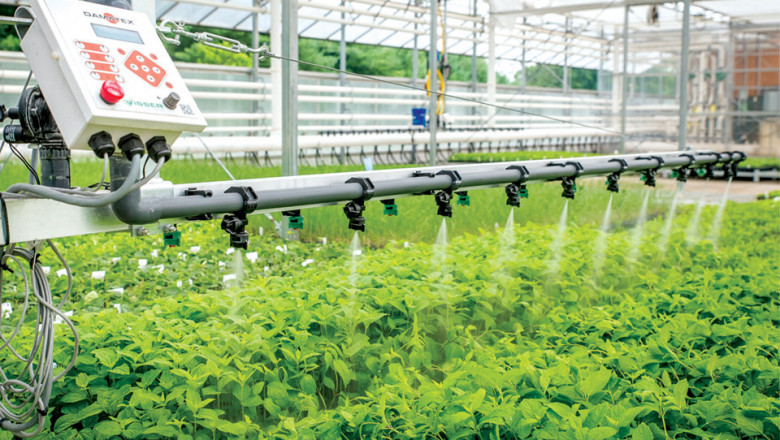views
Artificial Intelligence (AI) is revolutionizing the smart irrigation market by enabling predictive analytics that optimize water use, reduce waste, and enhance crop health. Leveraging AI-driven insights, irrigation systems can anticipate environmental changes and adapt watering schedules proactively. This article explores the role of AI and predictive analytics in smart irrigation from 2025 to 2035.
How AI Enhances Smart Irrigation
1. Predictive Weather Analysis
AI models analyze historical and real-time weather data to forecast rainfall, temperature, and evapotranspiration rates. This enables irrigation systems to adjust watering schedules based on expected conditions, preventing over- or under-watering.
2. Soil and Crop Health Monitoring
Machine learning algorithms process sensor data on soil moisture, nutrient levels, and crop growth stages. This allows precise calculation of water requirements tailored to specific crops and soil types.
3. Anomaly Detection
AI can detect irregular patterns such as leaks, sensor malfunctions, or pest infestations by analyzing irrigation system data, enabling timely interventions.
AI-Driven Technologies in Smart Irrigation
-
Automated controllers that adjust irrigation in real-time based on AI predictions.
-
Cloud-based platforms integrating multiple data sources for comprehensive decision-making.
-
Mobile applications offering AI-powered insights and recommendations to farmers.
-
Drones and satellite imagery feeding AI systems with visual crop health data.
Benefits of AI Integration
-
Improved water efficiency and conservation.
-
Enhanced crop yield and quality.
-
Reduced operational costs through automation.
-
Better resilience to climate variability.
-
Data-driven decision-making for sustainable farming.
Market Trends and Adoption
-
Growing collaboration between AI technology providers and irrigation companies.
-
Increased funding for AI-focused smart irrigation startups.
-
Expansion of AI capabilities into small-scale farming and urban landscaping.
-
Integration with broader precision agriculture systems.
Challenges
-
High initial investment for AI-enabled systems.
-
Data privacy and cybersecurity concerns.
-
Need for user training to interpret AI insights.
-
Infrastructure limitations in rural and remote areas.
Future Outlook
As AI algorithms become more sophisticated and accessible, their adoption in smart irrigation will accelerate, driving significant improvements in water management. From 2025 to 2035, AI is expected to become a standard component of smart irrigation solutions globally.
Conclusion
AI-powered predictive analytics are transforming irrigation by enabling smarter, more efficient, and sustainable water use. By anticipating environmental changes and optimizing irrigation schedules, AI is helping farmers and landscape managers meet the challenges of climate change and resource scarcity.




Comments
0 comment